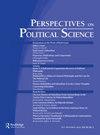精英的铁律与政治判断标准
Q4 Social Sciences
引用次数: 1
摘要
在一个“精英”受到许多有力批评、“民粹主义”引发多种恐惧的时代,自由民主的凝聚力甚至未来都受到了前所未有的质疑。本文通过考察意大利学派的思想家——加埃塔诺·莫斯卡、维尔弗雷多·帕累托和罗伯托·米歇尔斯,来探讨我们“分裂的城市”这个问题。他们被称为“新马基雅维利主义者”,旨在对社会构成和变化进行严格的科学理解。他们发现的核心是所谓的“寡头铁律”。任何社会,包括现代民主在内,都无法逃避少数人统治的现实。本文认为,他们的科学方法和普遍规律必然使他们无法理解政治生活的主要选择,以及人类历史上本质上岌岌可危的东西。矛盾的是,他们的观点最终无法判断精英和人民之间不断变化的关系。与当代学术界许多权威的社会科学一样,这一理论似乎本质上对人类生活的内容保持沉默或视而不见。在对精英理论的分析中,运用了古典政治哲学的方法来强调现代科学的替代。因此,这篇文章对理解实践领域的科学、政治的利害关系、人类社会的部分和整体的表达做出了贡献。本文章由计算机程序翻译,如有差异,请以英文原文为准。
The Iron Law of Elites and the Standards of Political Judgment
Abstract In a time when “elites” come under many cogent critiques and “populism” gives rise to manifold fears, the cohesion and even future of liberal democracy is today in question in ways that it has not been for some time. This essay approaches the issue of our “divided city” by way of an examination of the thinkers of the Italian School—Gaetano Mosca, Vilfredo Pareto and Roberto Michels. Better known as “the neo-Machiavellians,” they aimed at a rigorously scientific understanding of social composition and change. Central to their findings was the so-called “iron law of oligarchy.” No society, modern democracy included, can escape the reality of the rule of the few. This essay argues that their scientific methodologies and generalized laws necessarily precluded them from understanding the main alternatives of political life and what is essentially at stake in human history. Paradoxically, their perspective ends up being unable to judge the changing relations between elites and peoples. Like many authoritative social sciences in contemporary academe, this theory appears to be intrinsically silent about, or blind to, the contents of human life. Throughout the analysis of the theory of elites, the approach of classical political philosophy is invoked to highlight the modern scientific alternative. This essay is then a contribution to the understanding of the science of the practical realm, the stakes of politics, the articulations of the parts and the whole of human community.
求助全文
通过发布文献求助,成功后即可免费获取论文全文。
去求助
来源期刊

Perspectives on Political Science
Social Sciences-Political Science and International Relations
CiteScore
0.20
自引率
0.00%
发文量
24
期刊介绍:
Whether discussing Montaigne"s case for tolerance or Nietzsche"s political critique of modern science, Perspectives on Political Science links contemporary politics and culture to the enduring questions posed by great thinkers from antiquity to the present. Ideas are the lifeblood of the journal, which comprises articles, symposia, and book reviews. Recent articles address the writings of Aristotle, Adam Smith, and Plutarch; the movies No Country for Old Men and 3:10 to Yuma; and the role of humility in modern political thought.
 求助内容:
求助内容: 应助结果提醒方式:
应助结果提醒方式:


